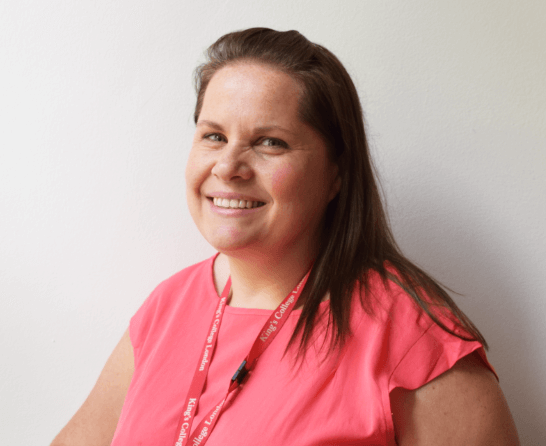
Nikki Bond, Senior Research Officer, Money and Mental Health
How government can make it easier for people moving from legacy benefits to Universal Credit
19 August 2021
For more than six million people Universal Credit (UC) is a financial lifeline. This means it’s essential that people are able to access the system with ease and efficiency. Our latest research found that more than half of people with mental health problems needed help from family or friends to manage their UC account. However, problems in the system make it incredibly difficult for people to authorise a loved one to assist them. Without the right support, people risk sanctions and losing out on benefits altogether.
Ensuring the system works for current UC claimants is only part of the challenge. There are still seven million people in receipt of old-style ‘legacy’ benefits, such as Jobseeker’s Allowance and Income Support, many of whom have particularly complex needs. They will be required to move over to UC by the end of 2024, and plans to encourage legacy claimants to transfer to UC voluntarily are due to commence later this year. However, given the high prevalence of mental health problems among this group, the Department for Work and Pensions (DWP) must commit to addressing this accessibility issue before proceeding with these plans. Otherwise, many vulnerable claimants are at risk of being unable to access the help they need to manage their UC account.
The scale of the problem
In our survey of legacy benefit claimants with experience of mental health problems, almost all (95%) respondents said that their mental health problems had affected their ability to manage their benefit claim. The effects of mental health problems – such as reduced concentration or difficulties with clarity of thought – can make it difficult for people to keep up with the tasks required to maintain their claim. These difficulties mean people often need to rely on family and friends to support them; eight out of ten (83%) survey respondents who received legacy benefits have ever wanted support with managing their benefits from family or friends.
In addition to these mental health challenges, UC also places greater demands on claimants, requiring people to be active participants in maintaining their claim. For example, people are expected to regularly check their online account, keep up with and respond to notifications, and complete tasks set by work coaches within specified timeframes. Faced with these challenges, many legacy claimants, will, as they have always done, need to turn to trusted family and friends for support.
However, the process of giving permission to a loved one to support you with maintaining your UC claim is inaccessible to many people with mental health problems. We are concerned that, as a consequence, many legacy benefit claimants risk experiencing devastating cuts to their income simply because they cannot delegate permission to a loved one to assist them with maintaining their account.
The help people need
The type of help people need to maintain their UC claim varies. For example, some claimants may need a loved one to help them understand the content of messages from the DWP. Others may require gentle nudges from loved ones to remember appointments or complete forms within specific timescales. The frequency of support can vary too. Some people will only need help temporarily, such as when they’re experiencing an acute period of mental health problems; others may always need some element of ongoing support. Whatever the level and frequency of people’s support needs, the DWP must ensure the UC system is designed to facilitate this.
Many survey respondents in receipt of legacy benefits described being terrified of moving over to UC. Some people’s anxieties centred around high profile issues such as the frequency of payments and digital exclusion, while others feared not being able to keep up with maintaining their claim alone.
“[I’m] terrified at the thought [of managing my UC claim] and won’t manage on my own.” Expert by experience
Join our campaign
People need a social security system that is accessible, and where they can access the help they need when they need it. The move to UC should not present additional barriers to getting this support. The government must ensure that suitable processes are in place that facilitate people permitting family and friends to help them, ahead of further plans for legacy claimants to move to UC.
Our Set Up To Fail campaign calls on the government to make changes to support both existing and future UC claimants by implementing small changes to the system to make it much easier for people to get help from loved ones.
